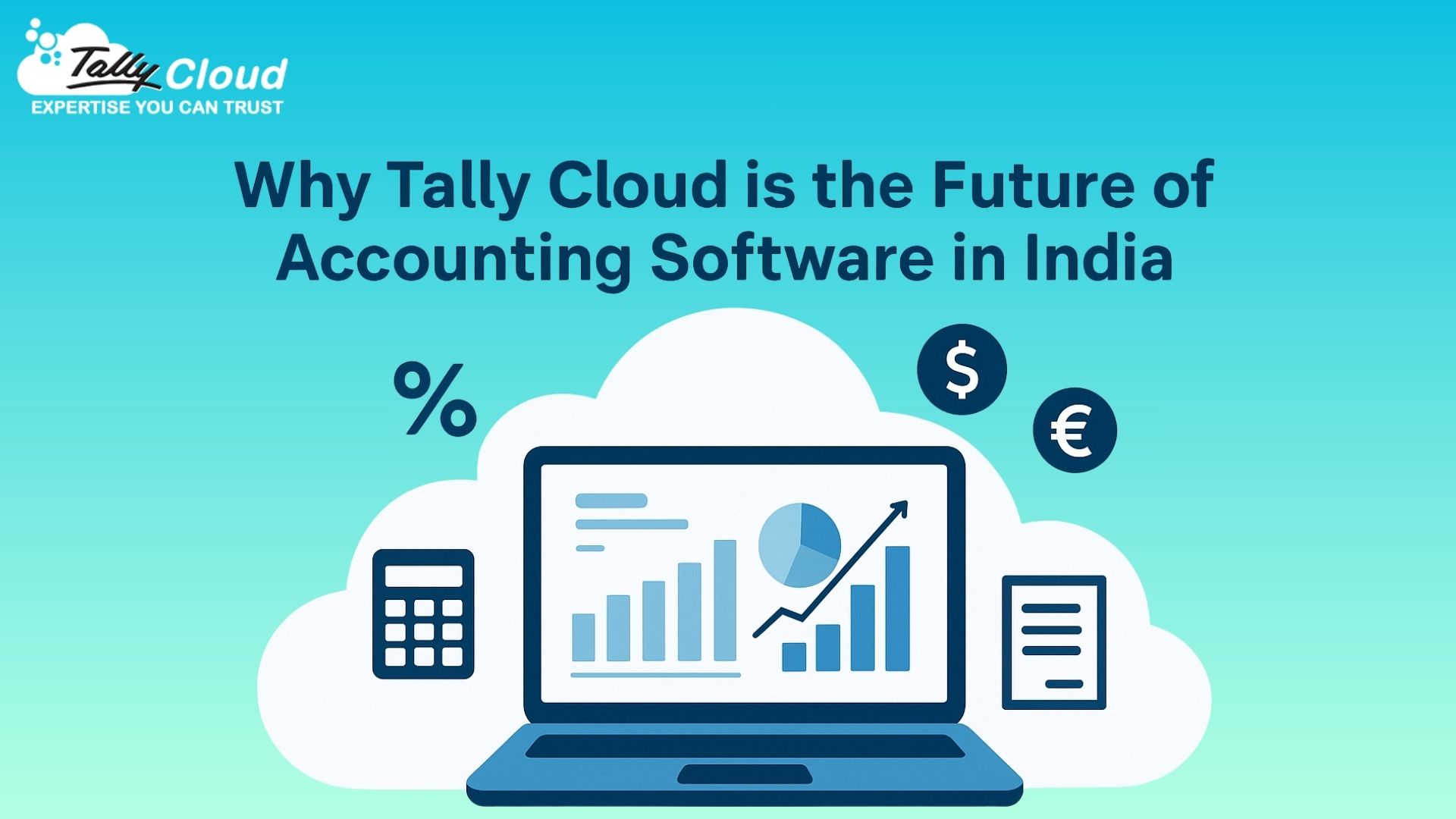India’s accounting landscape is changing quickly: GST compliance, e-invoicing, remote teams, and digital records are now a normal expectation. Traditional desktop Tally setups are not able to keep up with these demands. Tally Cloud (Tally on cloud) isn’t a nice-to-have — it’s the logical next step for modern Indian businesses. Here’s why cloud-based Tally is the future.
Digital adoption and regulatory complexity
India has moved rapidly to digitize tax and business processes (GST returns, e-invoicing, e-way bills). Staying compliant requires always-on connectivity, frequent software updates, and secure integrations with government portals. Tally Cloud makes it simple: a centrally hosted instance can be updated, patched and connected to e-invoicing APIs and GST utilities by the provider. Businesses no longer depend on individual desktops being configured correctly for compliance.
Remote access and distributed operations
India’s businesses are no longer confined to a single office. Retail chains, franchise networks and field sales teams require real-time visibility across locations. With Tally on cloud, branch transactions are centralized as soon as they are completed. Office has real-time visibility into inventory, receivables and GST liabilities. This means faster decision-making and tighter working capital management – particularly important for SMEs and start-ups.
Cost efficiency and lower barriers to entry
Setting up an on-premise Tally server requires hardware investment, UPS, backup drives and an IT resource for maintenance. For startups and small firms, that’s a barrier. Tally Cloud turns capital expenditure into predictable operational costs. Pay-as-you-grow models let businesses start small and scale CPU, RAM or storage as needed. That affordability accelerates adoption among micro, small and medium enterprises across India.
Automation and integration ecosystem
Contemporary organizations navigates digital tools in a myriad of ways. CRMs, payroll systems, e-commerce platforms, and bank connections are some of these tools. With Tally in the cloud as a master ledger, these systems can interface with Tally using secure connectors and APIs. Automation significantly streamlines the data movement from various systems, significantly reducing manual entries and transcriptions errors while also facilitating near-real-time reporting — vital for finance teams and CFOs requiring quick and accurate reporting.
Security, backups and regulatory compliance
Ensuring data privacy and adhering to secure retention procedures are key aspects of compliance today. Tally Cloud providers allow you to understand your own data and offer mission-critical services such as encrypted backups, role-based access, and regionally-located data centres to be within data residency expectations. Properly organized, versioned and offsite backups can alleviate some of the compliance angst if you face GST audits and statutory inquiries, as they will help you reduce potential legal risk.
Business continuity and disaster resilience
Power outages, hardware failures or local incidents can stall businesses for days. Cloud tally price setups offer redundancy, failover and tested recovery procedures. For companies operating in India’s varied infrastructure environment, this translates into uninterrupted accounting operations and reliable tax filings — a non-trivial advantage.
Enabling virtual CA practices and outsourcing
Chartered Accountants and bookkeeping firms are shifting to virtual service models. Tally Cloud makes it easy for CAs to access client books securely, run consolidated reports, and file returns remotely. This opens up efficient outsourcing models for SMEs, where professional accounting services are affordable and scalable.
Future-proofing with analytics and dashboards
Cloud simplifies aggregation of accounting data for analytics. Businesses can overlay Tally data with sales platforms to build dashboards for cash flow forecasting, margin analysis and inventory optimization. These insights are the foundation of data-driven decisions and are a key reason cloud accounting will outpace desktop installations.
The competitive advantage for Indian SMEs
Choosing Tally on the cloud isn’t just a technology change — it’s a competitive decision. Fast compliance, real-time finance, lower IT management and much faster scaling are what cloud-hosted Tally delivers, enabling small and medium enterprises (SMEs) to compete with larger players.
Conclusion: Accounting considerations of Indian businesses have moved on and Tally Cloud has moved with them. From GST, e-invoicing, remote working, increased cost efficiency and improved integrations Tally on the cloud gives an Indian SME, startup or CA the ability to run smarter.
